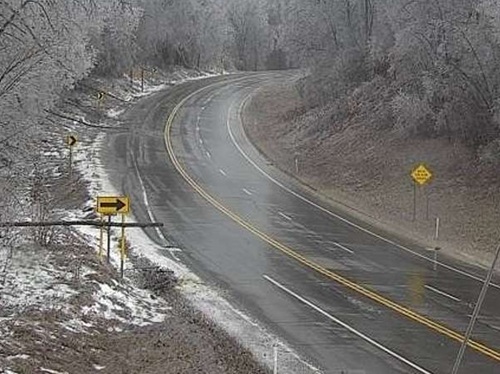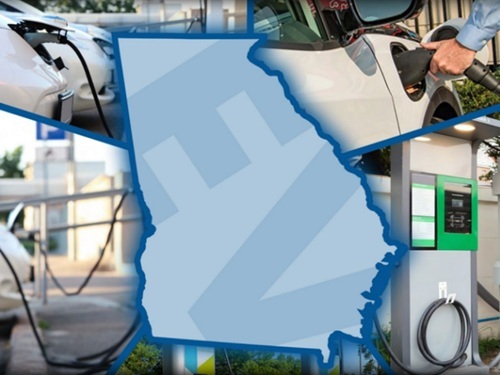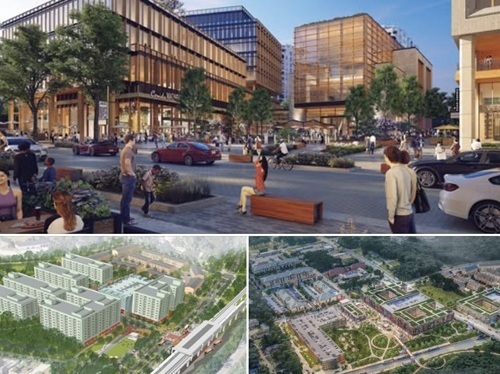The Maryland Department of Transportation recently issued $1.25 million in grants to three projects as part of the initial phase of its Transit-Oriented Development (TOD) Capital Grant and Revolving Loan Fund or TOD Fund program launched by the agency in February.
[Above image collage via Maryland DOT]
Maryland DOT said the TOD Fund program – established by the Equitable Inclusive TOD Enhancement Act signed into law by Governor Wes Moore (D) in 2023 – aims to help advance development projects near transit stations that will spur economic activity and increase connectivity in communities statewide. The funding program includes a total of $5 million to support the construction and design of transit-oriented developments across the state and help advance the state’s transit, economic development, climate and housing goals.
Awards for this first round of TOD Fund grants support the implementation of dense, mixed-use development projects at Reisterstown Plaza Metro Station in Baltimore City; Odenton Maryland Area Rail Commuter or MARC Station in Anne Arundel County; and the North Bethesda Metro Station in Montgomery County.
“These grants will help jumpstart the progress of building unique, dense communities around transit stations that will further connect Marylanders to opportunities,” explained Maryland DOT Secretary Paul Wiedefeld in a statement. “Our collective vision and investment to increase development near transit stations will create dividends of economic prosperity in Maryland for decades to come.”
The agency noted that it works closely with several other state agencies – including its Maryland State Highway Administration and Maryland Transit Administration divisions, as well as the Maryland Department of Housing and Community Development – to evaluate grant applications and select awardees.
Maryland DOT pointed out that a new round of TOD Fund awards will be announced later this year. Eligible local jurisdictions can apply for up to $1 million for planning, design, or public infrastructure improvements. Nonprofit or private development partners are eligible to apply in partnership with a local jurisdiction for up to $1 million in gap funding for projects within a state-designated transit-oriented development, the agency noted.
 States
States
Podcast: Flashing LED Lights Can Boost Roadway Safety
December 5, 2025 States
States

